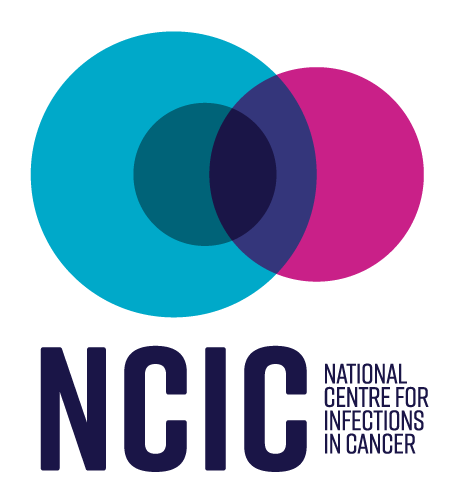Dear all,
I was extremely honoured recently to be appointed Professor of Infection in Cancer and Transplantation, University of Melbourne's Department of Infectious Diseases and the Sir Peter MacCallum Department of Oncology. This position consolidates our transition towards an all encompassing National Centre for Infections in Cancer and Transplantation. Keep an eye out on our social media for a new program of events and branding incorporating Cancer and Transplantation.
I would also like to congratulate Prof Karin Thursky, who was made a Fellow of the Australasian Institute of Digital Health (AIDH) earlier this month. AIDH is Australasia’s peak body for digital health, representing a united voice for health informatics and digital health leaders and practitioners. Thank you for your leadership Professor Thursky– a wonderful recognition of your trailblazing work in establishing the National Centre for Antimicrobial Stewardship and progressing the NCIC’s digital and connected health program of work.
Graeme Forrest, MBBS, is a Professor of Medicine in the Department of Medicine, Section of Infectious Diseases at Rush University Medical Center, Editor-in-Chief (EiC) of ASM’s Clinical Microbiology Reviews. Prof Forrest Forrest’s research focuses on antimicrobial stewardship and resistance in immunocompromised hosts. Graeme will be presenting on " AMS in Transplant infectious diseases" Sign up for the live link HERE.
NCIC Journal Club
Monthly, Fridays 12 pm
The first of the 2023 monthly NCIC Journal Club series begins Friday March 3rd 12-1pm with Dr. Abby Douglas and Ms. Anna Khanina each presenting a paper TBA. Sign up for a live link to the NCIC Journal Club series HERE.
Publication highlight
Detecting evidence of invasive fungal infections in cytology and histopathology reports enriched with concept-level annotations
Vlada Rozova, Anna Khanina, Jasmine C. Teng, Joanne S.K. Teh, Leon J. Worth, Monica A. Slavin, Karin A. Thursky, Karin Verspoor.
Invasive fungal infections (IFIs) are particularly dangerous to high-risk patients with haematological malignancies and are responsible for excessive mortality and delays in cancer therapy. Surveillance of IFI in clinical settings offers an opportunity to identify potential risk factors and evaluate new therapeutic strategies. Existing manual infection surveillance processes are time- and resource-intensive.
Supported by the NHMRC project grant MEETING THE CHALLENGES OF INVASIVE FUNGAL INFECTION: ANTIFUNGAL STEWARDSHIP AND EFFECTIVE SURVEILLANCE IN HIGH-RISK GROUPS, we aim to develop a system for automated IFI surveillance by leveraging electronic medical records and developing artificial intelligence methodologies.
This work, published in a recent edition of Journal of Biomedical Informatics, demonstrates how cytology and histopathology reports can be automatically analysed using natural language processing to detect the presence of IFI. Given its strong performance, our tool will play a key role in the broader project of automated detection of IFI to support timely and accurate infection surveillance.
This NHMRC project is led by Karin Thursky and Anna Khanina in collaboration with Karin Verspoor and Vlada Rozova at the School of Computing Technologies, RMIT University.
Recent publications
B. Sim et al A multi-centre retrospective study of Nocardia speciation and antimicrobial susceptibility in Queensland
Chin Fen Neoh, et al Invasive Scedosporium and Lomentospora prolificans infections in Australia: a multicentre retrospective cohort study | Open Forum Infectious Diseases
V Hall and B Teh Learning how to treat coronavirus disease 2019 in hematopoietic stem cell transplant patients
B. Sim et al SARS‐CoV‐2 seropositivity in renal transplant patients administered intravenous immunoglobulin
Lindsay J, et al Invasive Fungal Infections After CLAG-M/CLAG Chemotherapy for Acute Myeloid Leukemia and High-Grade Myeloid Neoplasms.
Raad II, … Slavin M, Teh B, et al, International multicenter study comparing COVID-19 in patients with cancer to patients without cancer: impact of risk factors and treatment modalities on survivorship.
All NCIC publications can be found HERE
Kind regards
Prof Monica Slavin, MBBS, MD, FRACP, FAAHMS
Head, Department Infectious Disease, Peter MacCallum Cancer Centre
Professor of Infection in Cancer and Transplantation, University of Melbourne Department of Infectious Diseases and the Sir Peter MacCallum Department of Oncology
Director, National Centre for Infections in Cancer




